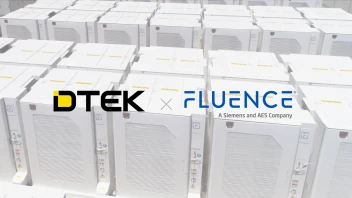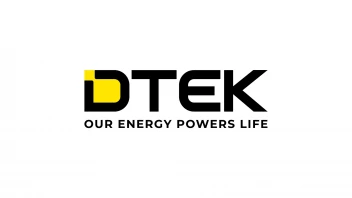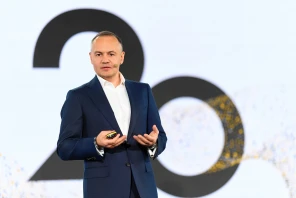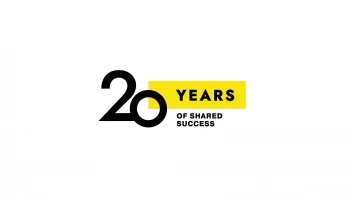DTEK conducts its activities in accordance with the requirements of legislation and best practices of corporate governance, compliance and anti-corruption. We openly represent our position on all issues related to the activities of our company. Below is the full text of the answers that were sent at the official request of the Kyiv Post editors during the preparation of their material on the Rotterdam+ case.
Kyiv Post: According to our information, DTEK began lobbying for the increase in the price of coal as a component of electrical energy generation in early 2015. At first, the pressure had nothing to do with import parity and everything to do with avoiding default or unwanted restructuring.
The economic element of the Association Agreement between Ukraine and the European Union was signed on June 27, 2014. According to the Article 269 of the Agreement, gas and electricity prices for industrial consumers should only be determined by market mechanisms, i.e. demand and supply. Taking into account that at the moment of signing the Agreement, competitive gas and electricity markets were not introduced in Ukraine, paragraph 4 of this Article provided: "If the price at which gas and electricity are sold on the domestic market is regulated, the Party ensures that the methodology that determines the calculation of the regulated price is published before the regulated price comes into force." Thus, Ukraine has committed itself to forming a clear and public method for calculating the price of gas and electricity. https://zakon.rada.gov.ua/laws/show/984_011#Text
The Resolution of the National Energy and Utilities Regulatory Commission (NEURC) No.289 03.03.2016 set out the methodology which calculates the forecast wholesale electricity market price (WMP) and included the price for coal (Rotterdam+ formula). Resolution No. 289 was adopted by the NEURC based on the decision of the Antimonopoly Committee of Ukraine (AMC). Earlier, the AMC carried out a thorough study of the Ukrainian electricity market, including tariff setting mechanisms for coal fired power plants (TPP). Based on the study, AMC highlighted the lack of transparency and clear rules for tariff setting as well as fuel cost calculation mechanisms for coal fired power in Ukraine.
Prior to the approval of the Resolution, there was no clear methodology for the formation of the electricity WMP. As a result, electricity prices were independently determined by the NEURC. NEURC's decisions were biased, which deprived the participants of the Ukrainian energy market of transparent and predictable business conditions. Such "manual regulation" of coal and electricity prices by the NEURC created plenty of opportunities for corruption.
The conflict in the Donbass region and the subsequent loss of coal deposits in the eastern part of Ukraine created the need to import coal, the cost of which could not be covered by the existing electricity tariffs at that time. Intermittent coal supplies from uncontrolled territories in the eastern part of Ukraine and a lack of working capital at thermal power plants posed a threat to the power supplies in the autumn-winter heating period.
The industry average profit margin of Ukrainian TPP was about 8% during 2005-15. In contrast, the industry average profit margin plunged to minus 25% in 2015, which caused a deep crisis in the electricity generation industry.
Long term power plant and coal mines operations are impossible in such conditions. DTEK, as one of the market participants, has repeatedly publicly expressed its concern and pointed to the extreme imbalances in the electricity generation market in 2015. If the 2015 situation persisted, it would have led to a complete collapse of the energy industry. At that time, all market participants proposed possible solutions to overcome the crisis.
With the adoption of the Resolution No.289, NEURC lost ability to voluntarily influence profitability of TPPs and coal mining business, since the prices, from the moment on, were tied to the free European market indices.
Import parity was an obvious benchmark for the coal market in 2015. The A-grade coal, consumed by power plants, was already being imported at a price of ca. 2,000 UAH/t. compared to domestic coal price at 1,100 UAH/t., which still could not be covered by the existing electricity prices in 2015. As far as G-grade coal is concerned, its domestic production was enough to cover about 90% of the demand, however electricity produced from G-grade coal was more expensive and lost its competitiveness vis-à-vis A-grade coal.
For example, the cost of coal produced at state-owned mines constituted UAH 2,500/t. While import price for G-grade coal was significantly lower, close to UAH 2,000/t. should the state stop supporting lossmaking domestic coal industry, import coal price would be the benchmark price for all types of coal on the Ukrainian market.
Moreover, the index-based formula approach to coal price setting is not a unique case. On April 27, 2016, the Cabinet of Ministers of Ukraine adopted Resolution No.315, which fixed the price of gas (including Ukrainian domestic production gas) to the prices at European gas hub NetConnect Germany (NCG) and the cost of its delivery to Ukraine. The gas price setting method is called the “Dusseldorf +” formula.
The justification of the import parity approach has repeatedly been stressed by the International Monetary Fund. In particular, the IMF’s commitment to the import parity approach could be found the last Memorandum dated June 2, 2020, signed by The President Volodymyr Zelenskiy : "As of January 1, 2020, in accordance with Government Resolution № 867, we have liberalised gas tariffs for the residential consumers. For the rest of the current heating season, the wholesale price of gas supplied by NJSC Naftogas in accordance with special obligations will correspond to the levels of import parity, and for each month will be determined as the average spot price of natural gas on the day ahead market at the TTF hub from the 1st to the 22nd day of the month, plus the cost of transportation and import to Ukraine."
DTEK has always consistently supported the introduction of transparent rules for the electricity and coal markets. At the same time, DTEK conducts its activities exclusively in accordance with the requirements of the applicable law, and in compliance with the principles of legality and transparency in its interactions with government agencies and market players.
The adoption of the Resolution No. 289 is not related to DTEK’s debt restructuring negotiations.
Kyiv Post: NEURC’s analysis found that the Rotterdam+ formula was extremely unbalanced, anti-consumer and grossly exceeded domestic coal costs. NEURC also found that the costs you wanted to include in your energy tariff did not help you make electricity but rather fulfill your credit obligations, payroll and portfolio diversification. We were told that DTEK call for a 60% profitability to increase its profits.
The fairness and validity of the "Rotterdam +" formula use in Ukraine, as well as the legitimacy of including transportation costs in the calculation of the coal price, have been confirmed by many Ukrainian and international experts and studies. Affirmative conclusions about the validity of the application of the "Rotterdam +" formula in Ukraine were presented by four Ukrainian state research institutes of forensic examination and private forensic experts.
The validity and fairness of the formula has been proven by the studies of such reputable international experts as IHS CERA (the world's leading consultant on fuel markets), EURACOAL (European Coal and Brown Coal Association), the world's largest audit companies.
The formula primarily protected consumers by setting understandable and transparent prices for coal and electricity, without overstating them, but also not understating them.
The constant understatement of the price of electricity, which took place before the introduction of the formula, led to a gradual and stable loss of generation and raw materials in the country, the loss of energy independence, and in the long term led to an increase in prices for consumers. Ukraine has already gone through this path, reducing local production of natural gas and becoming dependent on fuel supplies from Russia.
At the same time, we do not know anything about the analysis of National Energy and Utilities Regulatory Commission (NEURC), which would criticise the formula for determining the price of coal in accordance with Resolution No. 289. On the contrary, NEURC presented the Resolution during public discussions, in the approval process in the Ministry of Fuel and Energy, the State Regulatory Service, AMC, the Ministry of Justice, and during the meetings of the NEURC. Accordingly, the regulator supported Resolution and methodology.
The fact that DTEK called for a profitability of 60% doesn’t reflect the actual situation. In 2015, DTEK power plants’ profitability was minus 27%. Thus, DTEK had righteously demanded an economically just decision that would determine transparent and fair conditions for all participants of the Ukrainian energy market. However, it is incorrect to say that the formula brought excess profits to DTEK. Between 2016-2018, the profitability of DTEK's TPPs was 2%. The profitability of TPPs in 2009-2014, before the formula came into effect, was 12%.
The formula also did not bring excess profits to the coal mining sector – Again between 2016-2018, the profitability of DTEK's coal mining enterprises amounted to 4%. Stating that formula overestimated the cost of Ukrainian coal is fundamentally wrong - during this period, given the high cost of most Ukrainian mines, the average profitability of coal mining was negative, and almost all state enterprises received subsidies from the budget to cover losses.
Kyiv Post: Nevertheless, the formula was agreed upon after dialogue between DTEK, NEURC and the country’s highest political office.
Due to the legal status of NEURC as the state body, its decision to adopt Resolution No. 289 was collegial and was passed by all NEURC members.
The proposed by NEURC approach to determining the coal price based on import parity was supported by the Ministry of Energy and Coal Industry of Ukraine, the Antimonopoly Committee of Ukraine and the State Regulatory Service of Ukraine.
The AMC considered the proposed formula to be a step up in the direction of European price setting best practices, since it finally replaced manual regulations on the electricity market.
There was no behind-the-curtains "dialogue between DTEK, NEURC and high-level politicians" that would lead to the adoption of a methodology for determining the price of thermal coal. On the contrary, the company openly expressed its opinions both during public discussions and in letters to the NEURC and state bodies.
Kyiv Post: NEURC’s computers had correspondence from DTEK which outlined the formula. There is evidence proving that Rotterdam+ was authored by DTEK and then handed to NEURC.
DTEK is a major player in the market. DTEK takes active part in many working groups discussing regulatory proposals in accordance with the law. We emphasize that company representatives did not hide their position and conveyed it in official letters, voiced it at meetings with government agencies and other market players.
To our knowledge, the first drafts of the methodologies for tariff setting formulas for electricity and coal have been prepared by the Wholesale Electricity Market Council since 2011. The Regulator might as well have used these while preparing the Resolution. The draft Resolution was published on the NEURC’s website and all parties interested could send their comments to the Resolution. Taking into account the comments and suggestions of market players, after public discussions and open meetings, the regulator approved the final text of the Resolution.
There is no evidence that DTEK employees insisted on a specific text of the Resolution during their correspondence with NEURC. The proposals made by DTEK have been formally sent to the regulator.
Thus, the information that the "Rotterdam +" formula was authored by DTEK and then transferred to NEURC" does not correspond to reality.
Kyiv Post: DTEK authored analytical papers that presented the formula in a positive light, after which NEURC signed them and released them as if it were the author.
This statement is not true. DTEK representatives exchanged views on the approaches to price setting mechanisms within the framework of official meetings along with other participants in the energy market, on a public and open basis, as it is stipulated and allowed by legislation. The use of "import price parity" was the best solution for the Ukrainian market, which was proven by the number of studies by the international audit and research companies, Ukrainian forensic experts, which proves that NEURC's decision was well-grounded and justified.
The preparation of analytical materials is part of the procedure for public discussion of regulatory documents. However, only state bodies carry out the approval and adoption of the resolutions. At the same time, the procedure for approving NEURC’s Resolution does not allow the NEURC to “sign and publish the formula”. In particular:
- the development of the Resolution was based on the results of the AMC investigation and the Committee itself agreed on the final text of the Resolution;
- NEURC makes a decision collegially, and in this case the decision was taken unanimously by all members of the Commission;
- there is no evidence of the influence of the company's employees on the members of NEURC;
- in accordance with the requirements of the law, public discussions of the Resolution were held and the text of the Resolution was changed after receiving comments and suggestions from government agencies and market participants;
- the draft Resolution was Approved by NEURC according to the procedure of internal approval;
- On November 18, 2015, the draft was first published and approved on 03/03/2016, that is, the discussion and adjustment of the draft Resolution took almost five months, and in general the draft was published twice to receive comments and suggestions;
- the project was approved by the AMC, the Ministry of Fuel and Energy, the State Regulatory Service, and the Ministry of Justice.
Both the procedure for adopting the Resolution and the Resolution itself (its content) were challenged in Ukrainian courts. Based on the lawsuits, 15 court decisions were adopted, which did not find violations either in the procedure for adopting the Resolution, nor in the content of the Resolution. In August 2020, the Special Anti-Corruption Prosecutor's Office decided to close the case against the Company's employees. 3.5 years after opening the case, and a year of pre-trial investigation, the facts of violations of the law were not established.
Kyiv Post: Inside talks between DTEK, energy officials, the president’s office and other related parties helped the investment firm ICU buy DTEK’s eurobonds on the Irish stock exchange, as well as DTEK’s credit portfolio from a group of foreign banks. These securities later jumped in price following the formula’s implementation.
After the initial public offering on the securities market, DTEK's Eurobonds are freely sold and bought by independent financial market participants. DTEK, as an issuer of securities, has no information regarding the resale of bonds by one investor to another and has absolutely no influence on this process, which is fully consistent with the concept of the financial market.
The situation is similar with the loan portfolio of the DTEK group. Investors have the right to sell DTEK's loan obligations at any time convenient for them, without having any obligations to coordinate this process with the company.
As for the increase in the value of DTEK securities: this trend was observed in the first half of 2016 both in relation to the bonds of DTEK and sovereign bonds of Ukraine, corporate bonds of Ferrexpo, FUIB, Metinvest and others. The increase in value of almost all securities after the crisis of 2014-2015 was associated with an improvement of the macroeconomic situation in Ukraine - for the first time, recovered GDP growth and growth of industrial production. DTEK, among other things, during this period negotiated the restructuring of its loan portfolio, which significantly contributed to the rise in bond prices.
Independent research and forensic expertise ruled out the correlation between the adoption of the formula and the change in the value of DTEK's bonds.
Kyiv Post: After the formula was approved by NEURC, the regulator's director asked DTEK to help find votes from MPs (who lobby the interests of Rinat Akhmetov in the parliament) to get Rotterdam+ signed into law.
Resolutions of the NEURC does not require ratification by the Parliament.
Rinat Akhmetov is not a politician, does not conduct political activities and has never lobbied for his interests in the Parliament.
Kyiv Post: It is understood that Rinat Akhmetov and Petro Poroshenko made a deal to increase each other’s profit through Rotterdam+.
We categorically deny these claims. Rinat Akhmetov does not influence the management of DTEK. DTEK, in turn, conducts its activities in accordance with the requirements of the legislation and best practices of compliance and anti-corruption.
It is a myth that the excess profit of thermal power plants and mines in Ukraine, was, allegedly, obtained as a result of the application of the "Rotterdam +" formula.
International audit company KPMG analysed the profitability of DTEK's business in comparison with peer mines and thermal power plants in other countries. According to the conclusions of the auditor, in coal business segment, only the best DTEK mines achieved the average profitability of the world coal production companies. The average profitability of DTEK in the coal mining business in Ukraine are significantly lower than the average peers’ indicators.
The profitability of vertically integrated peer companies (which include both coal-fired TPPs and coal mining) in terms of profit before interest and taxes in 2016-2018 averaged 18%, while DTEK Energy reported 11%. DTEK Energy, which includes thermal power plants and mines, received a net loss in the amount of more than USD 100 million during the period of the formula.
DTEK would like to address authors of this article and urge them to observe the principles of journalistic ethics, objectively and comprehensively analyse events in a such complex area as price setting methodology in the energy markets.
In our opinion, all the questions laid out in the request were studied in the course of the criminal investigation. The company and its employees provided comprehensive information to law enforcement agencies on all the questions raised, including those raised by you, which also led the closure of this criminal case. We warn everyone against providing incorrect information, pressure on the judiciary and creating a negative reputation for the company. Our activity is legal and we will protect this legitimacy and reputation by all legal means.







